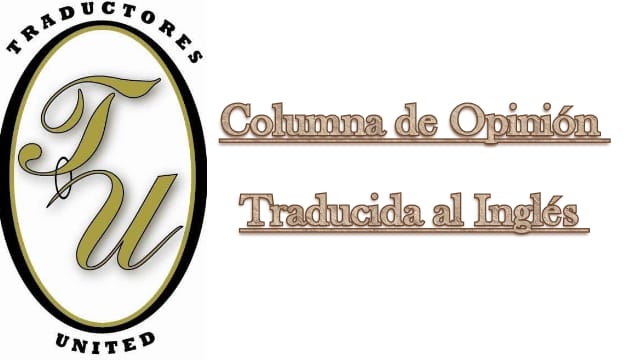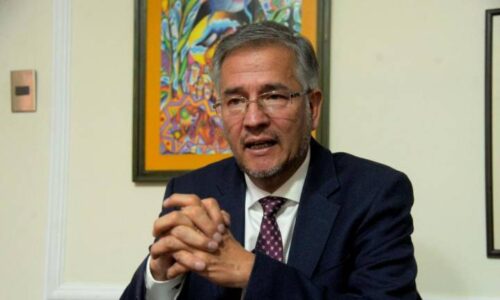

5 November 2021
The diplo(MAS)cy
“In the world of international relations, where ‘misunderstandings’ are generally the best understandings, this phenomenon is exacerbated by the hardly reversible effect of the term used,” says Benoit Turcat in his foreword to the Basic Dictionary of International Relations, by author Aitor Iraegui.
That of the “term” is extended to the acts, actions, and gestures of diplomatic agents who represent their States in their respective legations and the highest authorities in foreign policy matters —Ministers of Foreign Affairs, Chancellors—. At times, silence can be thunderous; other times, the greatest grievances can be uttered in language so elegant that they seem like buds about to bloom. That’s how delicate the matter is.
Each government has the right to imprint its style on the relations with “other powers”, as was said before, in such a way that it is possible that each new administration generates its own particular approach on macro policies or on certain disputes. Historically, the maritime case has been a source of diplomatic formulas regarding the peer State: we have gone and returned from bilateralism to multilateralism, from vindicationism to practicalism and its nuances, the “fresh approach”, the “maritime quality”, up to a final solution that cost us the definitive loss, by a Judgment of the Court of The Hague, of sovereign access to the coasts of the Pacific.
What cannot happen, and if it does, already becomes, at least, an irregularity, is to incur in improvisation, picturesqueness, or plain rudeness. And the last fifteen years they have been prodigal at it.
The quality of the Foreign Service of a State not only depends on its policies in the matter but, fundamentally, on the preparation of the personnel that represents it. While there is a kind of tacit agreement to assign career officials and others, among prominent intellectuals and recipients of political favors, through discretionary appointments, today the Foreign Service is at its worst. A part of the diplomatic corps is made up of former judicial officials who gave the green light to the desire for indefinite reelection of their jefazo (boss); another, as if being a candidate for Mayor or Governor for the MAS was political insurance for former candidates defeated at the polls.
Mr. Morales Ayma coined “The diplomacy of the peoples”, implying that foreign relations were a matter of the “social movements”, going over regular and official channels, for this purpose. Demagoguery of colossal proportions.
The one who held the reins of Bolivian diplomacy, at least formally, for most of this period of time was the current Vice-President, David Choquehuanca Céspedes, acting as Chancellor, he went against reading, pontificated regarding the sex of rocks, and prepared papaliza in a UN assembly inviting attendees to try it because it was the “Andean Viagra”; he is also the mastermind of the “reverse clock” of the Legislative Palace. Now, the one who led the Foreign Affairs of Bolivia, confirming his flat-Earth short-vision, refuses to be vaccinated: we might as well call him Covid Choquehuanca.
The most recent episode of the impoverished diplo(MAS)cy is the one starring the adventurer who, in clear offense to the nation who gave him an undeserved approval, produced a burlesque video believing that removing it from circulation would settle the mess.
In 2015, shortly after his appointment as Ambassador to the Holy See, career public officer Armando Loayza gave an interview to a Chilean media outlet in which he referred to Morales Ayma’s “anti-Catholic trauma”. The journalist exploited the statement towards the maritime issue, but, although what the Ambassador said is absolutely true, it was not appropriate for him to mention it given the mission he held. Loayza resigned before being asked to do so. The adventurer in question does not think of doing it.
Source: https://www.paginasiete.bo/opinion/puka-reyesvilla/2021/11/5/la-diplomasia-314254.html




